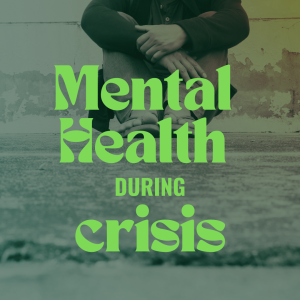Introduction
In Nigeria, faith remains one of the most trusted sources of comfort and healing, especially when individuals are overwhelmed by mental distress. Whether it is through prayers in churches or supplications in mosques, religious institutions often serve as the first point of contact for people grappling with emotional or psychological struggles. These settings offer a sense of belonging, spiritual reassurance, and social support that can be deeply therapeutic (Franz et al., 2024). However, when mental health conditions such as depression, anxiety, or psychosis are involved, relying solely on spiritual guidance may be insufficient and sometimes even harmful if it delays appropriate clinical care.
Mental health experts now advocate for a bio-psycho-social-spiritual (BPSS) model of care, recognizing that true healing addresses biological, psychological, social, and spiritual well-being, especially vital when emotional distress intersects with deeply held beliefs and values (Vanden End et al., 2022). In regions like Nigeria, where access to formal mental health care is limited and stigma remains high, strategic collaboration between religious leaders and mental health professionals has shown promising results. For instance, in southeastern Nigeria, a study involving church-based health advisors trained in mental health screening showed that clergy can be vital partners in detecting and referring individuals for care (Iheanacho et al., 2021).
Still, barriers persist. In many faith communities, mental illness may be misinterpreted as a spiritual attack, divine punishment, or personal weakness. Such beliefs, though rooted in cultural and religious traditions, can lead to harmful stigma and resistance to professional treatment (Franz et al., 2024). To promote holistic healing, there is an urgent need for open, respectful collaboration between faith-based systems and mental health services, one that honors spiritual beliefs while prioritizing psychological well-being.
The Role of Faith in Mental Health
In many Nigerian and wider African communities, faith is deeply interwoven with personal and communal identity, profoundly influencing how individuals perceive health and manage emotional crises. Practices like prayer, fasting, and fellowship are not merely religious observances, they are active coping strategies during times of distress. A 2023 systematic review found that religiosity and spirituality significantly reduce symptoms of depression and anxiety in youths, indicating that spiritual engagement offers protective benefits through enhanced emotional resilience, meaning-making, and social support (Aggarwal et al., 2023). Faith communities, including churches and mosques, often serve as the first point of contact for individuals experiencing emotional distress, especially in societies where mental illness is stigmatized. These spiritual communities offer social support, collective belonging, and moral encouragement that can buffer the effects of stress and trauma (Nkwonta et al., 2022).
However, while spiritual practices are vital, they are not always sufficient for managing clinically significant mental health conditions. Sole reliance on faith-based interventions may lead to delayed diagnosis or reinforce harmful beliefs, such as interpreting depression as a spiritual attack or a punishment for sin (Vanden End et al., 2022). For effective mental health support, there must be a collaborative balance between faith and professional mental health care.
Misconceptions About Mental Illness in Religious Spaces
In many Nigerian religious settings, mental illness is frequently misunderstood and often attributed to sin, spiritual weakness, or demonic possession. Such interpretations are rooted in long-standing cultural and theological beliefs that frame psychological distress as a moral or spiritual failure rather than a medical condition (Iheanacho et al., 2021). This misconception contributes to widespread stigma, reinforcing the idea that seeking professional mental health care reflects a lack of faith or trust in God.
Faith leaders, though respected as sources of emotional support, sometimes reinforce harmful narratives. A study in Benin City revealed that over 70% of clergy believed persons with mental illness required supervision similar to children, with some expressing resistance to integrating them into the faith community (James et al., 2014). These perspectives can discourage open discussions about mental health and delay timely diagnosis and treatment, particularly when individuals are encouraged to rely solely on prayer, fasting, or deliverance rituals.
This delayed intervention often leads to serious consequences. Without professional support, mental health conditions can worsen over time, manifesting in strained personal relationships, reduced work performance, unemployment, or even serious risks like suicidal thoughts. Compounding the issue, internalized stigma, fueled by religious narratives can prevent individuals from acknowledging their struggles or seeking help, resulting in prolonged illness and missed opportunities for healing. In Africa, such internalized stigma affects approximately 29% of people living with mental illness, severely hindering treatment and recovery efforts (Alemu et al., 2023). While spiritual practices can be valuable coping mechanisms, they cannot and should not replace evidence-based mental health interventions.
Shared Goals: Where Faith and Mental Health Align
Despite historical divisions, both faith leaders and mental health professionals ultimately share a common goal which is restoring human dignity and alleviating suffering. In resource-limited settings, religious institutions often serve as the first point of emotional support, providing community, compassion, and hope (Gureje et al., 2020). A landmark cluster-randomized trial in Nigeria and Ghana (COSIMPO) demonstrated that structured collaboration between traditional or faith healers and primary healthcare workers significantly improved psychotic symptoms, reduced harmful practices like shackling, and decreased stigma among patients (Gureje et al., 2020).
A Nigerian study conducted in Imo State found that stigma influences whether clergy collaborate with mental health professionals. Clergy who reported lower stigma levels were more likely to refer their congregants to mental health services, demonstrating the potential for faith professionals to act as effective entry points into clinical care (Aguocha, 2024).
Evidence shows that when spirituality is integrated respectfully into therapeutic practice, clients experience improved engagement and outcomes especially in cultures where religion plays a central role in everyday life (Sulaiman, 2020). This collaboration recognizes that mental well-being and spiritual wellness are not mutually exclusive; rather, they reinforce one another when appropriately harmonized.
Building Bridges Between Faith and Mental Health Professionals
Collaboration between faith leaders and mental health professionals offers a promising approach to improving mental health care in culturally sensitive ways. In many African settings, including Nigeria, religious leaders are trusted figures and often serve as the first point of contact for individuals experiencing emotional or psychological distress (Gureje et al., 2020). This places them in a unique position to act as mental health gatekeepers, provided they are equipped with the appropriate knowledge and support.
Training programs aimed at improving mental health literacy among pastors, imams, and traditional healers have shown promising results. These initiatives not only increase awareness but also encourage appropriate referrals to mental health professionals when spiritual interventions alone are insufficient. Such collaborative models reduce the risk of harmful practices such as chaining or exorcisms, and promote a more integrated, humane response to mental illness (Gureje et al., 2020).
Moreover, faith-based organizations can host psychoeducation workshops, support groups, and outreach events, creating safe spaces for open conversations around depression, trauma, and healing. This not only normalizes mental health challenges but also fosters a compassionate and stigma-free environment where faith and therapy coexist.
The Way Forward: Community-Based Mental Health Interventions
A truly holistic mental health system in Nigeria must weave together spiritual, psychological, and medical support into a unified network of care. Religious leaders, who often serve as the first point of emotional contact, can be pivotal allies in identifying and referring individuals who may require professional mental health services. In fact, the landmark COSIMPO trial (Gureje et al., 2020) demonstrated that training faith and traditional healers to collaborate with primary care clinicians led to significant improvements in psychosis outcomes, reduced harmful practices like chaining, and decreased stigma.
In addition, a 2022 review in Annals of Medicine and Surgery highlighted the crucial role of traditional healers in Nigeria’s mental health care fabric. The authors emphasized that policymakers and government agencies need to establish frameworks for capacity building, documentation, and formal referral pathways linking spiritual and clinical care (Anjorin & Wada, 2022) notwithstanding the complexity surrounding traditional practice.
For lasting change, NGOs and government bodies should support faith communities by funding mental health training, expanding access to counseling within religious settings, and hosting regular mental health education events. Policy reforms are also essential to require endorsement at the national level to ensure that faith–mental health partnerships are seen as credible, well-regulated, and patient-centered.
By dismantling siloed care models and fostering collaborative ecosystems where prayer, therapy, medication, and community solidarity complement each other, we open pathways to healing that are culturally resonant, accessible, and deeply human.
Conclusion
The conversation around mental health in Nigeria and across many faith-centered societies need not be a binary of church, mosque, or therapy. Rather, the most sustainable path forward lies in integrating both spiritual and professional mental health support. The dichotomy between faith and psychology is increasingly outdated; healing thrives when we honour both the spirit and the science.
Faith leaders have the trust and cultural reach needed to shift perceptions and reduce stigma. Mental health professionals bring the clinical expertise to provide accurate diagnoses and evidence-based interventions. When both groups work in collaboration, they form a powerful alliance for holistic care.
As Nigeria continues to confront the growing mental health crisis, it is imperative that policymakers, communities, NGOs, and religious institutions recognize the potential of collaborative models. We must advocate for faith-inclusive training, interdisciplinary care pathways, and safe spaces where individuals feel spiritually affirmed and clinically supported.
True healing does not ask whether to pray or to seek therapy, it invites us to do both.


